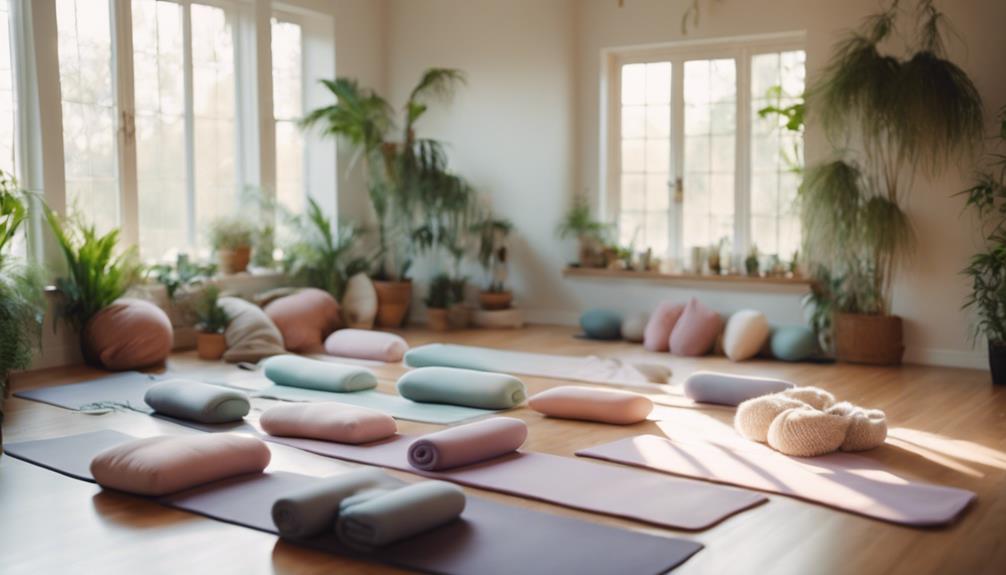In recent years, yoga retreats have surged in popularity, becoming a sought-after escape for individuals seeking to deepen their practice and enhance their overall well-being. These immersive experiences offer participants an opportunity to disconnect from the hustle and bustle of everyday life and reconnect with themselves in serene environments. Whether you are a seasoned yogi or a beginner, attending a yoga retreat can be a transformative experience that fosters growth both physically and mentally.
This article will delve into the multifaceted world of yoga retreats, exploring their benefits, popular destinations, and what you can expect during such an enlightening journey. It will also provide practical tips for packing, choosing the right retreat, and maximizing your overall experience.Yoga Poses For Balance For BeginnersYoga Larchmont Village
Understanding the Concept of Yoga Retreats Explained
Yoga retreats are immersive experiences designed to promote self-discovery, relaxation, and rejuvenation through the practice of yoga and mindfulness. These retreats typically take place in tranquil settings, allowing participants to step away from their daily routines and immerse themselves in a peaceful environment. The settings can range from beach resorts to mountain lodges, each providing the ideal backdrop for personal transformation and healing.
The structure of yoga retreats often includes daily yoga classes, meditation sessions, workshops, and healthy meals. Participants engage in various practices that not only enhance their physical strength and flexibility but also encourage mental clarity and emotional balance. The retreat atmosphere fosters connection with like-minded individuals, creating a supportive community that enhances the overall experience.
Benefits of Attending a Yoga Retreat for Wellness
Attending a yoga retreat offers numerous benefits, beginning with the opportunity to disconnect from the stresses of daily life. Many participants report feelings of relaxation and rejuvenation, as the retreat allows them to focus on self-care and personal growth without the distractions of work, technology, and other obligations. This dedicated time for oneself can lead to reduced stress levels, improved mental clarity, and an overall sense of well-being.
Moreover, yoga retreats often provide structured programs that integrate physical yoga practice with elements of meditation, healthy eating, and holistic wellness. This comprehensive approach can help participants cultivate healthier habits, gain a deeper understanding of their bodies and minds, and even spark new sources of inspiration and creativity. The profound impact of these experiences can lead to lasting changes long after the retreat has ended.
Popular Destinations for Yoga Retreats Worldwide
Yoga retreats can be found in many picturesque locations around the globe, making it easy for participants to choose a destination that resonates with them. Some of the most popular locations include Bali, Indonesia, known for its lush landscapes and tranquil atmosphere; Costa Rica, offering abundant nature and eco-friendly accommodations; and the serene beaches of Thailand. Each of these destinations provides a unique backdrop that enhances the overall retreat experience.
In addition to exotic locales, yoga retreats can also be found closer to home in places like the picturesque mountains of Colorado, the serene lakes of Canada, and the peaceful countryside of England. These diverse options allow individuals to select a setting that aligns with their personal preferences, whether they seek tropical relaxation or the tranquility of nature closer to home.
What to Expect During a Yoga Retreat Experience
When attending a yoga retreat, participants can typically expect a well-structured schedule that balances yoga sessions, workshops, and relaxation time. Most retreats feature daily yoga classes that cater to various skill levels, allowing both beginners and experienced practitioners to engage meaningfully in their practice. Additionally, many retreats incorporate opportunities for group discussions, guided meditations, and personal reflection, which contribute to a holistic experience.
The atmosphere at a yoga retreat is often one of support and community, with participants forging connections with each other through shared practices and experiences. This sense of belonging can transform the retreat into a nurturing environment that encourages personal growth and exploration, making it a memorable experience for all involved.
Essential Items to Pack for Your Yoga Retreat
Packing for a yoga retreat requires careful consideration to ensure you have everything you need without overloading your luggage. Essential items typically include comfortable yoga clothing that allows for ease of movement, a yoga mat (if not provided), and any props you may prefer, such as blocks or straps. It’s also wise to pack layers, as many retreats take place in locations with varying weather conditions.
In addition to yoga-specific gear, participants should also consider bringing personal items such as reusable water bottles, journals for reflection, and skincare essentials. Don’t forget to include any medication or supplements you may require. A good book or a journal can also be helpful for downtime, allowing you to reflect on your experiences throughout the retreat.
Types of Yoga Styles Practiced at Retreats
Yoga retreats often offer a variety of styles to cater to different preferences and skill levels. Common styles include Hatha, Vinyasa, and Ashtanga, each bringing its own unique approach to practice. Hatha yoga is gentle and focuses on basic postures, making it an excellent choice for beginners. Vinyasa offers a more dynamic flow, connecting movement with breath, while Ashtanga is more rigorous and follows a set series of postures.
Some retreats may also introduce specialized practices such as Kundalini, Yin, or restorative yoga, providing participants with opportunities to explore different aspects of their practice. This diverse range allows individuals to deepen their understanding of yoga and discover new techniques that resonate with their personal journey.
Daily Schedule Breakdown of a Typical Yoga Retreat
A typical day at a yoga retreat is often structured to provide a balance of yoga practice, mindfulness activities, and relaxation. Mornings usually begin with early yoga sessions, allowing participants to awaken their bodies and set a positive tone for the day. Following the practice, a nourishing breakfast is served, often featuring healthy, locally-sourced ingredients.
Afternoons may include workshops, meditation sessions, or free time for participants to explore the surroundings or engage in self-care activities. Evenings often conclude with another yoga class or a group discussion, followed by dinner. This structured yet flexible schedule enables participants to fully immerse themselves in the experience while also allowing for personal reflection and downtime.
How to Choose the Right Yoga Retreat for You
Selecting the right yoga retreat involves considering several factors to ensure that the experience aligns with your personal goals and preferences. Start by evaluating the type of yoga practice you enjoy and the level of intensity you’re comfortable with. Some retreats may focus solely on yoga, while others incorporate additional wellness therapies, so it’s essential to identify what you’re seeking from the experience.
Additionally, consider the retreat’s location, duration, and accommodations. Some participants may prefer a luxurious resort experience, while others might seek a more rustic setting. Researching the retreat leaders and their teaching styles can also provide insight into whether the retreat is a good fit for you. Reading participant reviews and testimonials can further help gauge the overall atmosphere and success of the retreat.
Mindfulness and Meditation in Yoga Retreats
Mindfulness and meditation are integral components of many yoga retreats, enhancing participants’ overall experience and supporting personal growth. These practices encourage individuals to cultivate awareness of the present moment, fostering a sense of calm and clarity. During retreats, participants often engage in guided meditations, breathing exercises, and other mindfulness activities, allowing them to deepen their connection with themselves and the world around them.
Incorporating mindfulness into daily routines can also provide long-term benefits, helping participants manage stress and improve emotional regulation. Many retreats emphasize the importance of bringing these practices back into daily life, empowering individuals to create sustainable habits that promote overall well-being beyond the retreat setting.
Tips for Maximizing Your Yoga Retreat Experience
To make the most of your yoga retreat, approach the experience with an open mind and a willingness to embrace new practices. Setting intentions for your time away can also help you focus on what you hope to achieve during the retreat, whether that be personal growth, relaxation, or deepening your yoga practice. This clarity can guide your engagement in various activities throughout the retreat.
Additionally, remember to balance participation with self-care. While it’s beneficial to embrace all aspects of the retreat, it’s equally important to listen to your body and rest when needed. Engaging with fellow participants and sharing your experiences can also enrich your journey, promoting connections that may last well beyond the retreat itself.
Yoga retreats provide an incredible opportunity for individuals to explore their practice, enhance their well-being, and connect with like-minded individuals in serene environments. From understanding the diverse aspects of a retreat to packing essentials and selecting the right one for you, this guide aims to empower your journey. As you embark on this transformative experience, may you find peace, growth, and an enduring sense of mindfulness that extends far beyond your time away.


